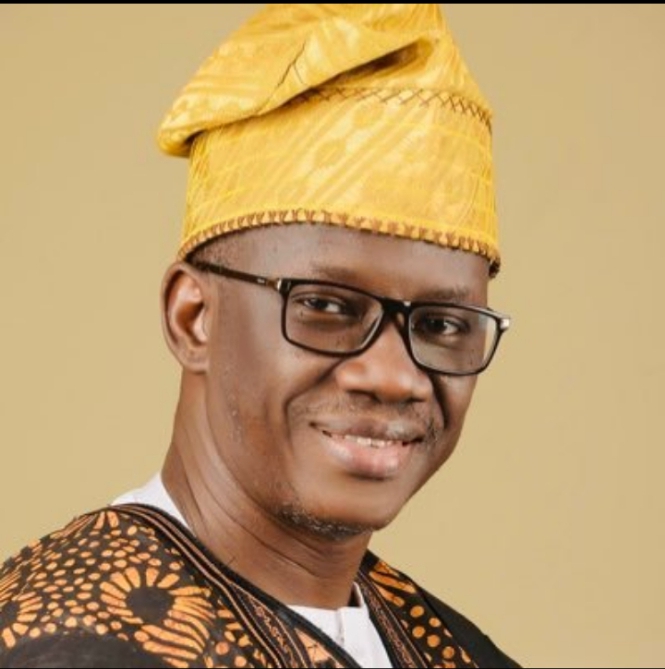826
As Nigeria edges steadily toward the 2027 general elections, the Independent National Electoral Commission (INEC) finds itself in the eye of a quiet political storm. A wave of over 100 applications from political associations seeking registration as political parties has surged into the Commission’s headquarters in Abuja, a development that is reigniting national conversations about electoral integrity, political reform, and constitutional freedoms.
In an exclusive interview with our correspondent, Tracy Moses, Mr. Rotimi Oyekanmi, Chief Press Secretary to the INEC Chairman, Prof. Mahmood Yakubu, offers deep insight into the status of these registration requests, shedding light on possible deregistration of ‘briefcase parties’ among others.
Has INEC truly received over 100 applications from associations seeking registration as political parties?
The number of applications that the Independent National Electoral Commission receives from associations seeking registration as political parties is not as important as those that are able to successfully satisfy the criteria for registration
It is thus more appropriate to talk about successful applications than just the raw number submitted. In any case, some applicants or associations may even withdraw their applications midway through the process.
What are the criteria for registration as political party?
An association must submit a letter of intent, along with a proposed name, symbol, and acronym, not later than 12 months before a general election. If the proposal passes the initial review, the group must then pay an administrative fee.
Upon payment, the Commission issues an Access Code to the chairman or secretary of the association, granting them access to download and complete various official forms and documentation within a 30-day window. These documents include the constitution of the proposed party, a draft manifesto outlining its ideological stance, proof of a physical national headquarters in the Federal Capital Territory (FCT), and a register of members backed by a sworn affidavit confirming the authenticity of the list.
Importantly, the association’s National Executive Committee (NEC) must comply with the federal character principle, with representation from at least 24 states and the FCT.
What happens if an application contains false information or individuals are involved in multiple applications?
Once submitted, the application is reviewed meticulously. If any information is found to be fraudulent, or if the same individuals are found to be involved in multiple applications, the Commission has the authority to invalidate the request.
Is INEC considering tightening party registration rules due to the high number of applications and past logistic challenges?
The Commission is not empowered by law to restrict the number of political parties. Freedom of association is guaranteed under the 1999 Constitution of the Federal Republic of Nigeria.
What then is INEC’s role regarding registration?
The Commission has a duty to ensure that any association applying for registration as a political party meets the criteria as stipulated in the extant laws.
Can you speak further on the legal criteria and constitutional provisions?
Section 222 mandates, among other things, that a political association must have open membership to all Nigerian citizens, submit names and addresses of national officers to INEC, avoid ethnic or religious symbols in its logo, and maintain a national headquarters in the FCT.
Section 223 emphasizes democratic elections of principal officers and federal character in leadership, while Section 224 requires that party goals conform to Nigeria’s fundamental objectives and directive principles of state policy.
The Electoral Act further stipulates timelines, including a minimum 12-month submission window before a general election, a 90-day response period for INEC, and a provision that automatically deems a party registered if INEC fails to communicate its decision within 60 days.
What do you make of allegations from public figures like Rotimi Amaechi, who claimed the Commission is blocking party registrations?
There is no basis for that allegation. The process of registration is strictly guided by law. No association that meets the requirements of the Constitution and the Electoral Act has ever been deliberately blocked.
How does electoral umpire address concerns that Nigeria has too many political parties?
The Commission is a creation of the Constitution and cannot act outside the powers granted to it. However, the Supreme Court has affirmed INEC’s power to deregister parties that fail to meet specific performance benchmarks.
Are there any additional requirements beyond the legal framework before a party can be registered?
Yes! Beyond the basic criteria, INEC also enforces nine additional conditions before approving any registration. These include cross-checking executive members’ indigene certificates and national identity documentation, validating democratic internal elections, and verifying data against records from the National Identity Management Commission (NIMC), Corporate Affairs Commission (CAC), and the Nigerian Immigration Service.
What final message do you have for aspiring political associations?
The Commission welcomes civic participation and association. But this process is not a free pass. It is legal, rigorous, and rooted in Nigeria’s constitutional values. No association will be registered unless it ticks every box.



